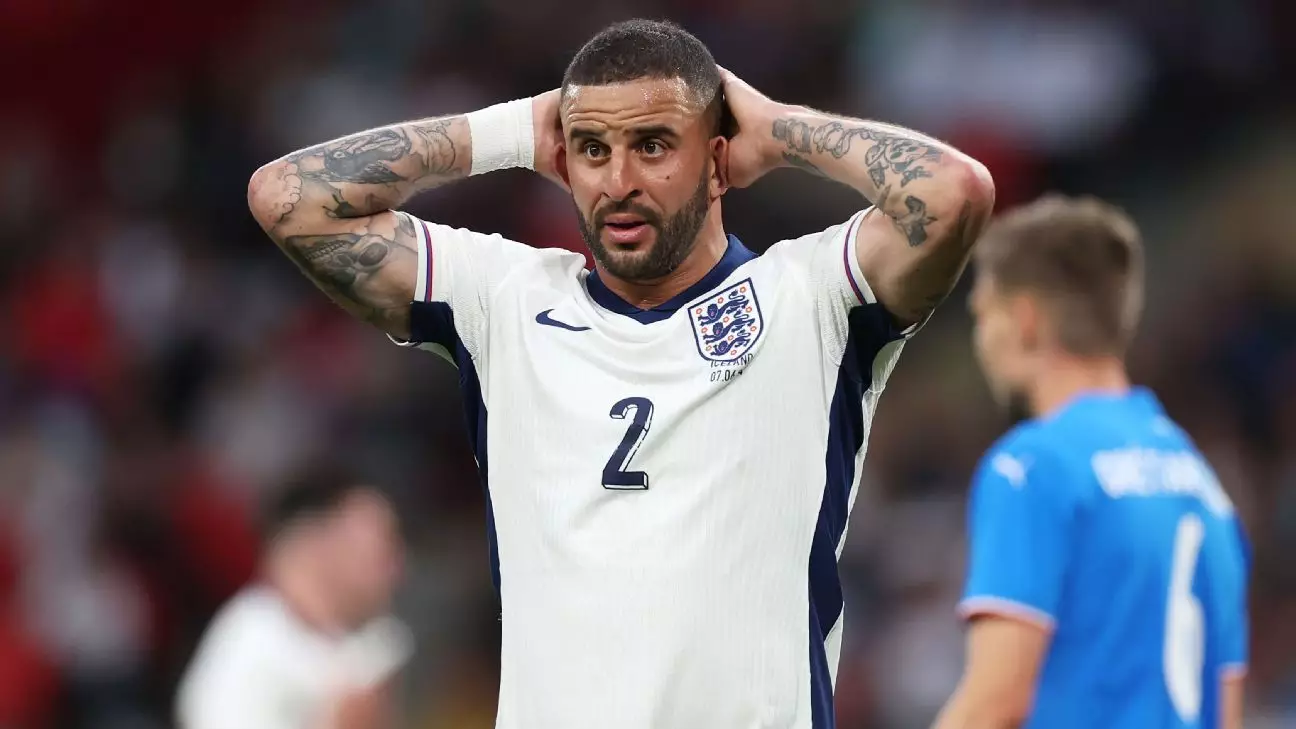In the competitive arena of European football, the synergy between club and national management is crucial. Recently, Manchester City manager Pep Guardiola voiced his concerns regarding the lack of communication between club and international team officials, particularly after defender Kyle Walker sustained an injury while on duty with the England national team. Walker was sidelined for City’s recent triumph over Wolverhampton Wanderers, raising questions about the management of player fitness when transitioning between international and club matches.
Guardiola’s frustration is not limited to the current situation with Walker. He recalled the previous season when another City player, John Stones, suffered an injury during a friendly international against Belgium. This incident left Guardiola “angry” and disappointed, especially knowing how crucial Stones was to City’s Premier League campaign. The timing of the injury came just as City was gearing up for a significant clash against Real Madrid in the Champions League, highlighting the high stakes involved in managerial decisions at both the club and international levels. Guardiola’s experiences underline a broader concern about how national team obligations can impact clubs’ performance.
Guardiola’s call for enhanced dialogue between club and national team managers is an important point. He pointed out that in his playing days, there was a direct line of communication, allowing for a more coordinated approach in managing players. His comments suggest nostalgia for a time when national managers were more considerate of club commitments, sparking a conversation about the evolving landscape of player management and responsibility-sharing. The absence of such communication now raises questions about players’ overall welfare, and it reveals systemic issues in managing athlete health across different levels of competition.
To mitigate these challenges, a systematic approach to communication between clubs and national teams needs to be established. Potential methods could involve scheduled check-ins and sharing detailed reports on player health before and after their international obligations. This proactive measure could ensure club managers are adequately informed about their players’ conditions and can prepare accordingly. Clubs invest significantly in player training and development, and it is imperative that they remain in the loop when national duties place players at risk.
As Manchester City prepares for their Champions League matchup against Sparta Prague, the implications of player health are ever-present. With Kevin De Bruyne recovering from an injury, Guardiola is aware of the delicate balance between rushing players back and ensuring their complete fitness. While De Bruyne is back in training, Guardiola emphasizes patience, reflecting a broader philosophy of prioritizing player health over short-term performance. This perspective aligns with Guardiola’s earlier commentary, reinforcing the idea that effective management extends beyond immediate results, considering the long-term implications for both players and the club.
Ultimately, Guardiola’s criticisms reveal ongoing issues within football regarding the communication between various levels of player management. As more players experience injuries during international duty, it is crucial for clubs and national teams to work together, preserving players’ health while maintaining competitive integrity on all fronts. This conversation must evolve if the sport is to safeguard its most valuable asset: the players themselves.

